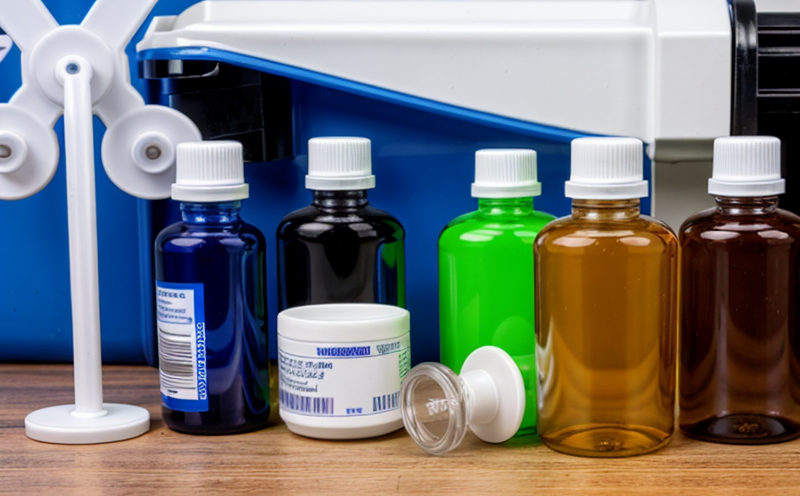EN 16226 Platinum Group Metals in Medical Waste
The European standard EN 16226:2015 provides a method for the determination of platinum group metals (PGMs) including ruthenium, rhodium, palladium, osmium, iridium, and platinum in medical waste. This standard is crucial for ensuring compliance with environmental regulations and supporting sustainable practices in healthcare facilities.
The primary focus on PGMs within this context arises due to their potential toxicity and the need for accurate quantification of these metals in various types of medical waste such as pharmaceutical manufacturing residues, disposable devices, and used chemicals. The presence of trace amounts of these metals can have significant implications for public health and environmental impact.
The methodology described in EN 16226 involves several key steps including sample preparation, dissolution, separation, and detection using advanced analytical techniques like atomic absorption spectrophotometry (AAS) or inductively coupled plasma mass spectrometry (ICP-MS). These methods ensure high precision and accuracy, which are essential for reliable results.
Compliance with EN 16226 is not only beneficial for the healthcare industry but also plays a vital role in reducing environmental impacts. By adhering to this standard, facilities can minimize the release of harmful substances into the environment while ensuring safe disposal practices that comply with international standards.
The procedure outlined in EN 16226 emphasizes the importance of proper sampling techniques and rigorous quality assurance measures throughout all stages of analysis. This approach ensures consistent and reproducible results, which are critical for making informed decisions regarding waste management strategies.
Understanding the implications of PGMs within medical waste requires an awareness of both their potential benefits (e.g., in catalysis) and risks (e.g., bioaccumulation). Compliance with EN 16226 helps mitigate these risks by providing a framework for safe handling, storage, treatment, and disposal.
Furthermore, this standard supports broader sustainability goals by encouraging the development of more efficient recycling processes and reduced reliance on virgin materials. Through accurate quantification, healthcare facilities can better manage their waste streams, optimizing resource use and minimizing overall environmental footprint.
Industry Applications
| Application Area | Description |
|---|---|
| Pharmaceutical Manufacturing | Detection of trace amounts of PGMs in manufacturing residues to ensure compliance with environmental regulations. |
| Disposable Medical Device Recycling | Quantification of PGMs from used devices for recycling processes and ensuring safe disposal. |
| Chemical Waste Treatment | Monitoring levels of PGMs in chemical waste to prevent contamination during treatment. |
| Hospital Waste Management | Auditing medical waste streams for compliance with EN 16226 standards. |
| Research and Development | Supporting R&D efforts by providing accurate data on PGM concentrations in various types of medical waste. |
| Sustainability Initiatives | Incorporating PGM analysis into broader sustainability programs to reduce environmental impact. |
| Regulatory Compliance | Ensuring compliance with international standards and local regulations related to PGMs in medical waste. |
Eurolab Advantages
At Eurolab, our commitment to excellence in testing and analysis extends to every aspect of EN 16226 compliance. Our expertise lies not only in conducting thorough analyses but also in offering tailored solutions that meet the unique needs of each client.
Our team of highly skilled analysts uses state-of-the-art equipment, including high-precision analytical instruments such as ICP-MS and AAS, to ensure accurate quantification of PGMs. This allows us to deliver reliable results consistently across all samples analyzed.
We pride ourselves on providing comprehensive reports that include detailed information about the methodology used, any deviations from standard procedures, and interpretations of findings within the context of EN 16226 requirements. Our reports are designed to be clear and accessible, enabling decision-makers to understand the implications of our results fully.
Additionally, Eurolab offers consultancy services aimed at helping clients implement best practices for managing PGMs in medical waste. From initial assessments to ongoing support, we are dedicated to ensuring that our clients achieve their goals efficiently and effectively.
The combination of advanced technology, experienced personnel, and comprehensive support makes Eurolab the premier choice for EN 16226 compliance testing. With us, you can trust in accurate results and informed decision-making when it comes to managing PGMs in your medical waste streams.
Environmental and Sustainability Contributions
The analysis of platinum group metals (PGMs) in medical waste, as outlined in EN 16226, plays a crucial role in supporting environmental sustainability initiatives. By accurately quantifying PGMs present in various types of medical waste, healthcare facilities can make informed decisions about how to manage these resources more sustainably.
One key area where this contributes is through improved recycling processes. Understanding the concentration and type of PGMs allows for better design of recycling systems that maximize resource recovery while minimizing environmental impact. This not only reduces the demand for new raw materials but also decreases waste sent directly to landfills or incinerators.
Moreover, compliance with EN 16226 helps prevent contamination during treatment processes by ensuring that only appropriate methods are used based on the specific composition of the waste stream. This prevents potentially harmful substances from entering the environment unintentionally.
Another significant contribution comes from supporting broader sustainability goals within healthcare facilities. By integrating PGM analysis into overall environmental strategies, organizations can identify areas where they can further reduce their carbon footprint and improve resource efficiency.
In summary, adhering to EN 16226 provides multiple benefits beyond mere compliance with regulations. It enables better management of waste streams, promotes more efficient recycling practices, reduces environmental impacts, and supports long-term sustainability efforts within the healthcare sector.





